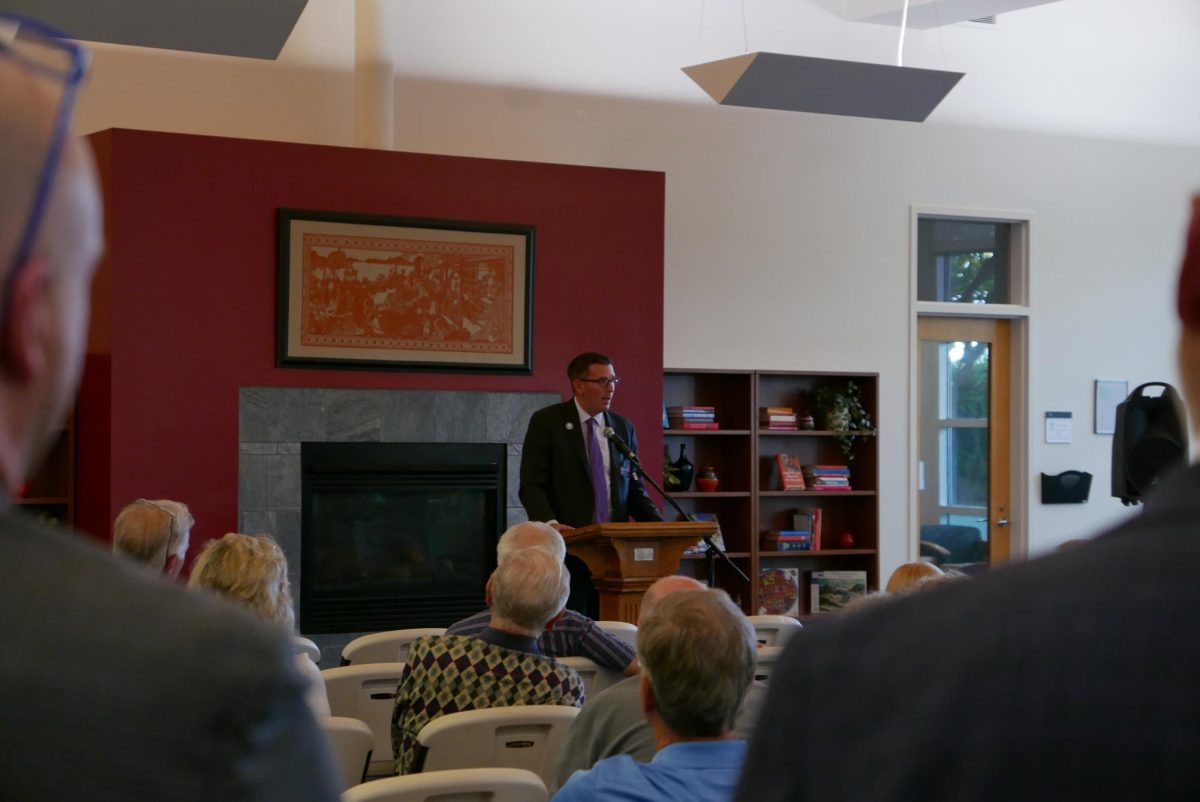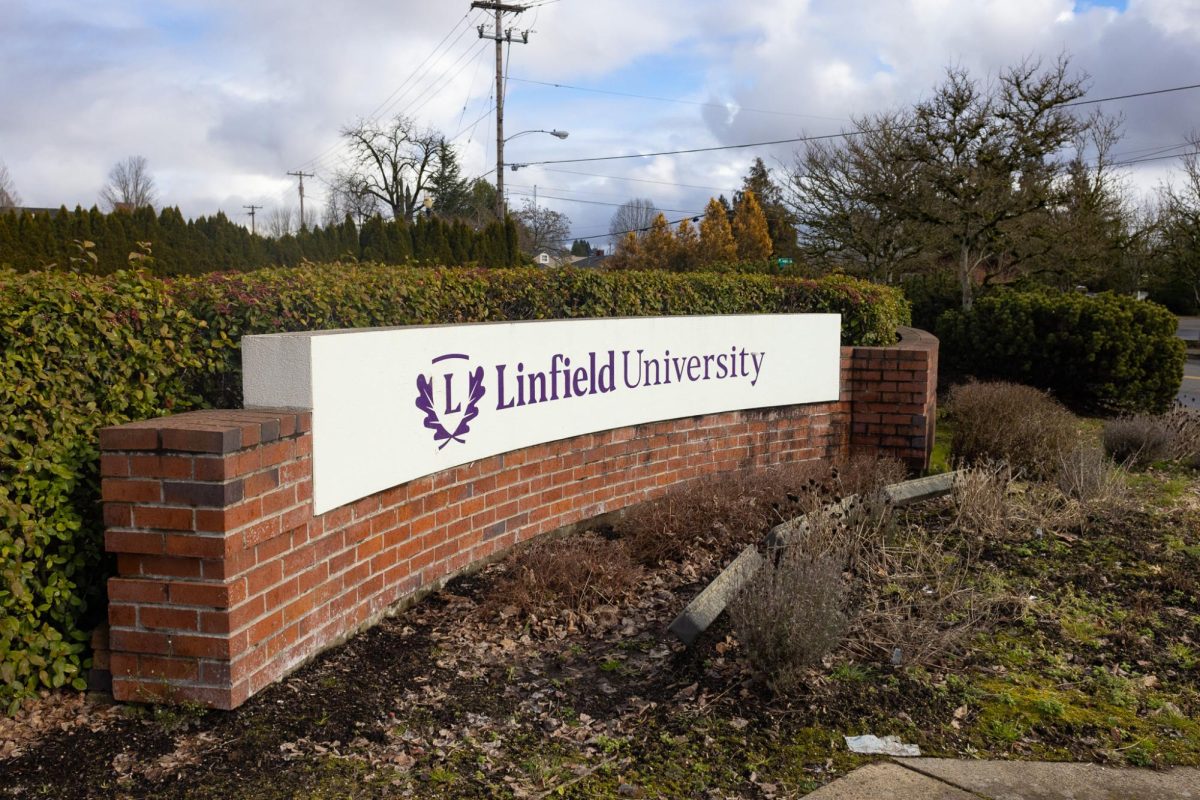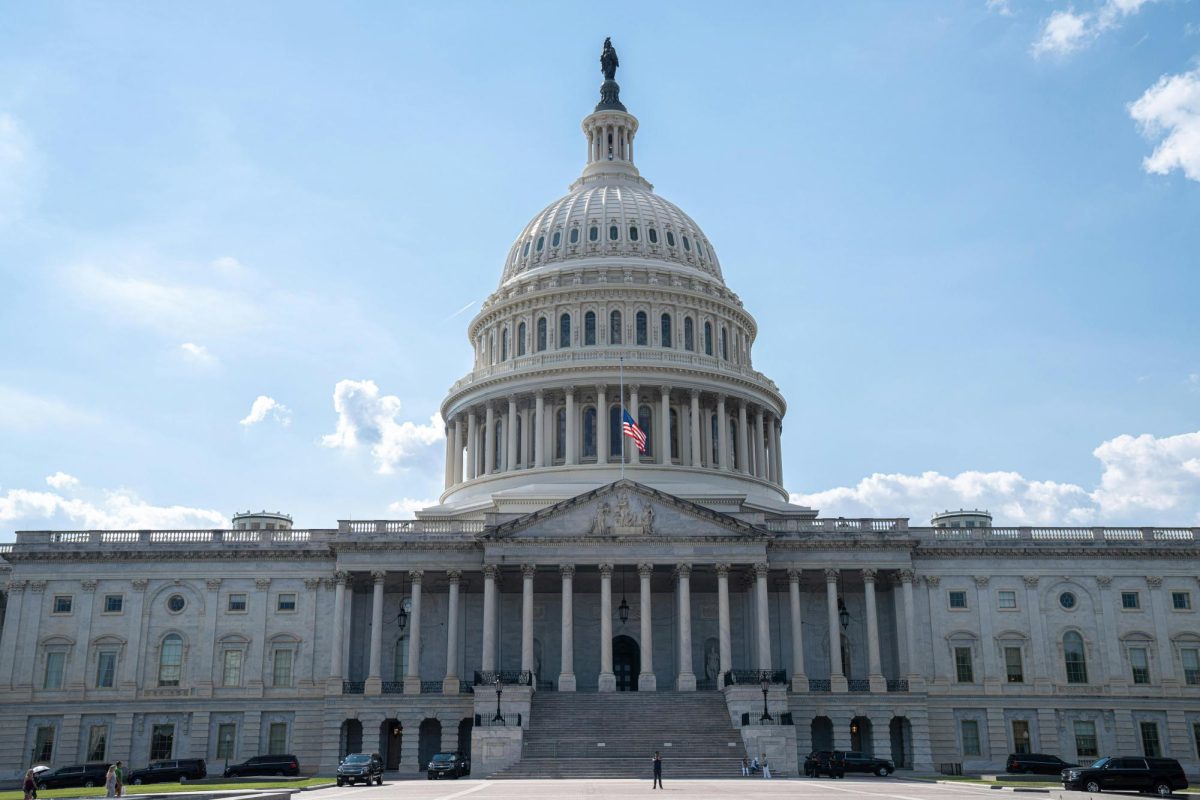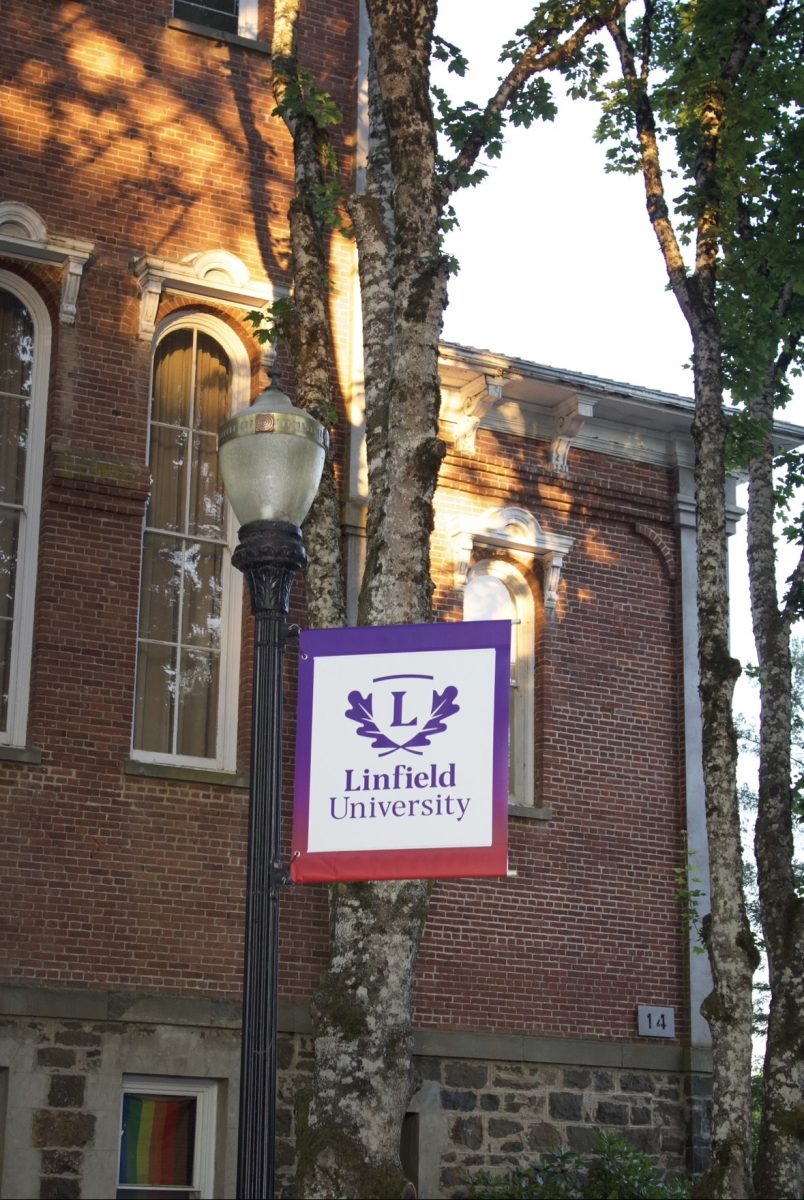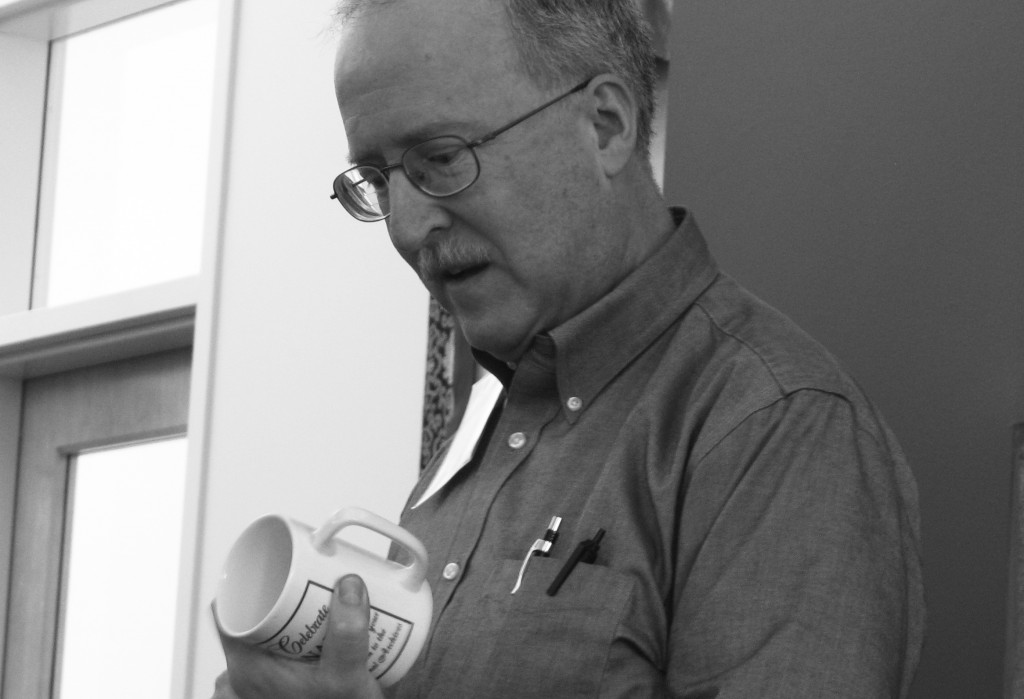
Tom Branigar, class of ‘74, shares his experiences from working in the Dwight D. Eisenhower Library from 1977-2008. He showed his coffee mug celebrating the library’s history.
The decision of what to do after graduation is always a tough one. New graduates often follow their passion, and that is exactly what one alumnus did.
Tom Branigar, a 1974 Linfield graduate, shared his experiences of working in the presidential archives from 1977-2008, as well as the changes made to the record keeping process during the years, April 4 to a small number of history majors and other faculty.
Branigar took his passion for history from a history minor to working in the presidential archive at the Dwight D. Eisenhower Library in Abilene, Kan.
“I was at the right place at the right time,” Branigar said. “It was a great honor to get to work at the Eisenhower Library.”
After finishing his degree at Linfield, Branigar attended Western Washington University, where he pursued his masters in Archives and Record Management. It was just as he finished his degree at Western Washington University when the news of three job openings at the Eisenhower Library reached him.
“[The Eisenhower Library] had Western Washington graduates work for them before, and so they knew the reputation of the school and the archive program. So I was lucky to be there at the time I was,” Branigar said.
Branigar had access to documents from the Eisenhower administration, and he explained that George Washington set up a rule that the presidential records of any given president were the personal processions of that president.
“George Washington took a very British idea and made it his own,” Branigar said.
It wasn’t until Jimmy Carter’s presidency that this would shift the ownership of the records to the federal government. This caused a divide in the collection of documents today.
Branigar said that much has also changed since the introduction of digital documents.
“Its a whole new age, and there was actually an incident when a bunch of documents had been destroyed, but since it was originally sent by email, they were able to recover them,” Branigar said.
According to Branigar, the main users of the Eisenhower Library are graduate students writing their dissertations, historians writing biographies and government officials.
While Branigar worked for the Eisenhower Library, he became an expert in the Eisenhower genealogy.
“In Germany, Eisenhower is like the last name Smith in America, everyone has it. So I have a lot of people who think they’re related to President Eisenhower,” Branigar said.
Branigar said that the most interesting document he came across was one he referred to as “the smoking gun” memo. This documented the destruction of all the files from Eisenhower’s transitional head quarters at the Commodore hotel in New York.
Kaylyn Peterson/Copy chief
Kaylyn Peterson can be reached at [email protected].

